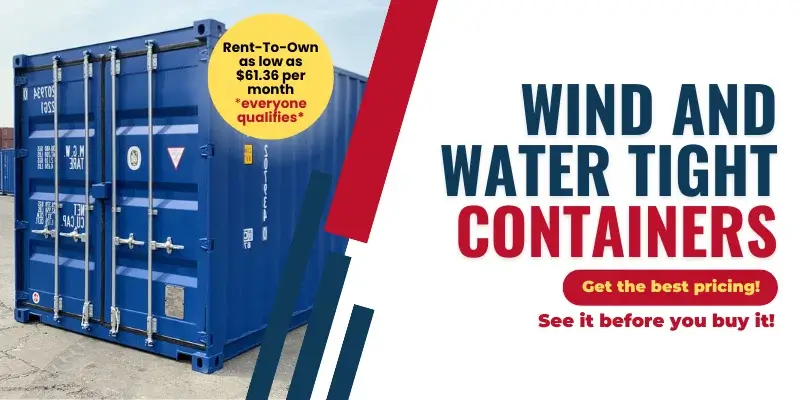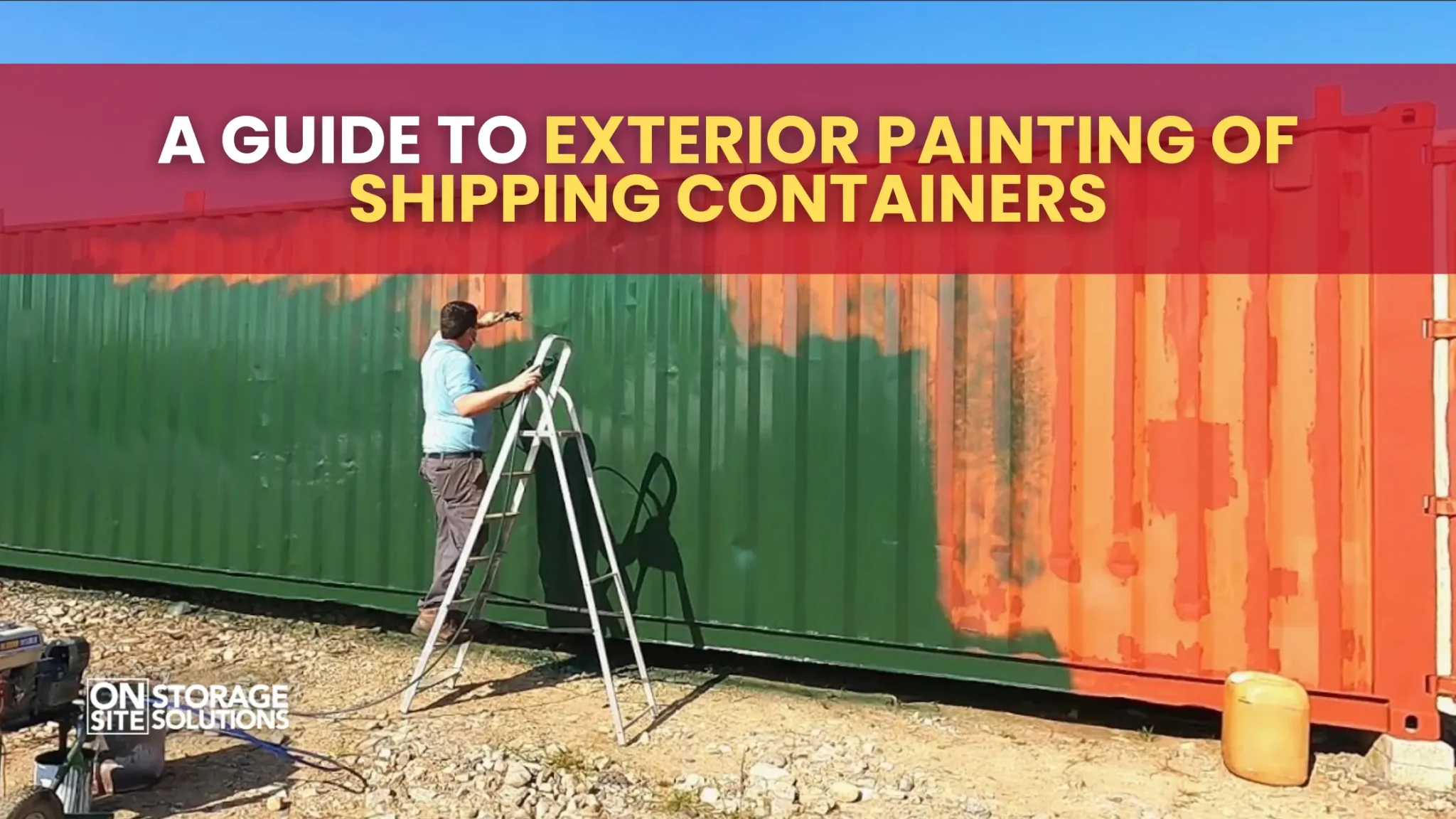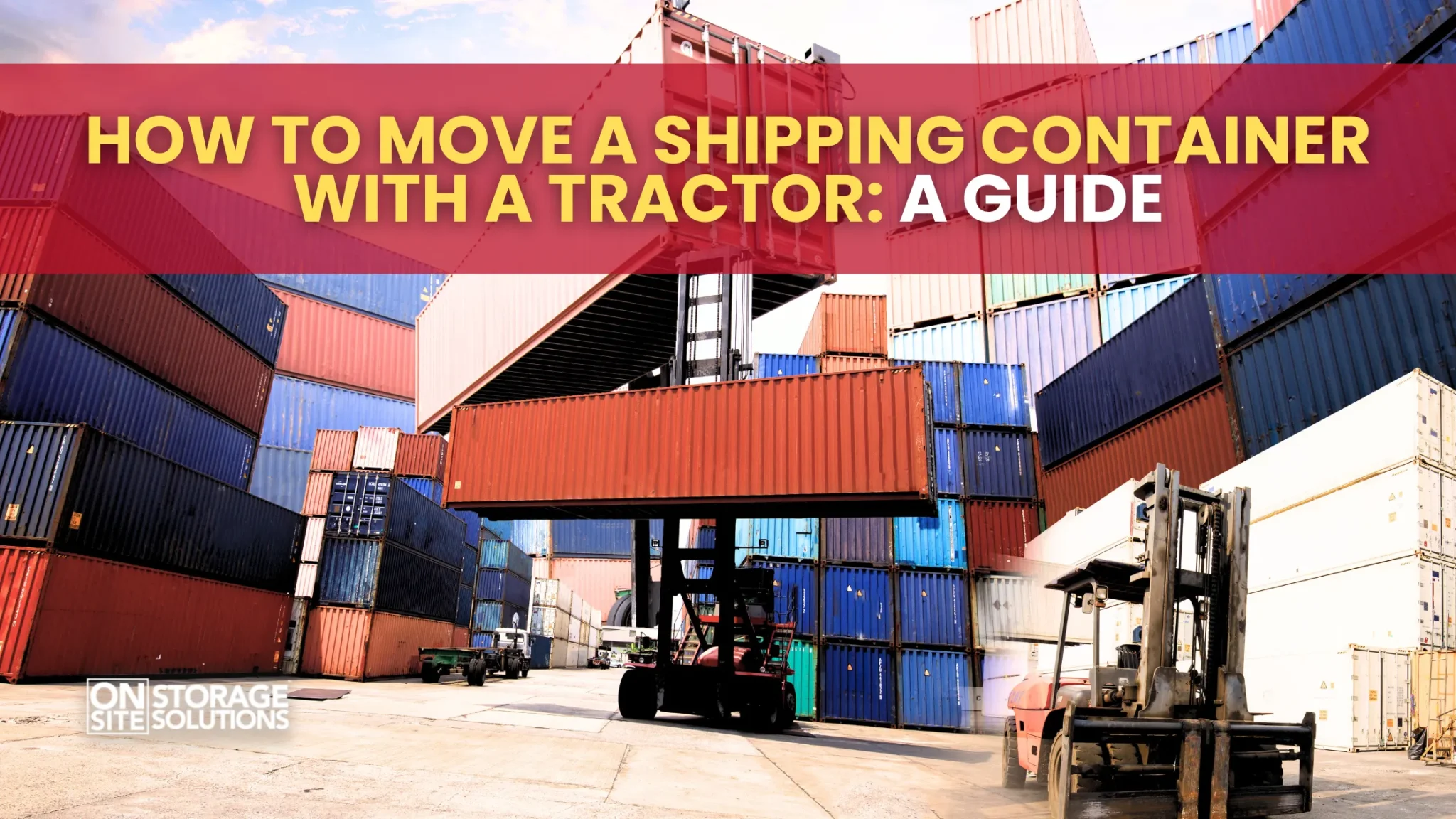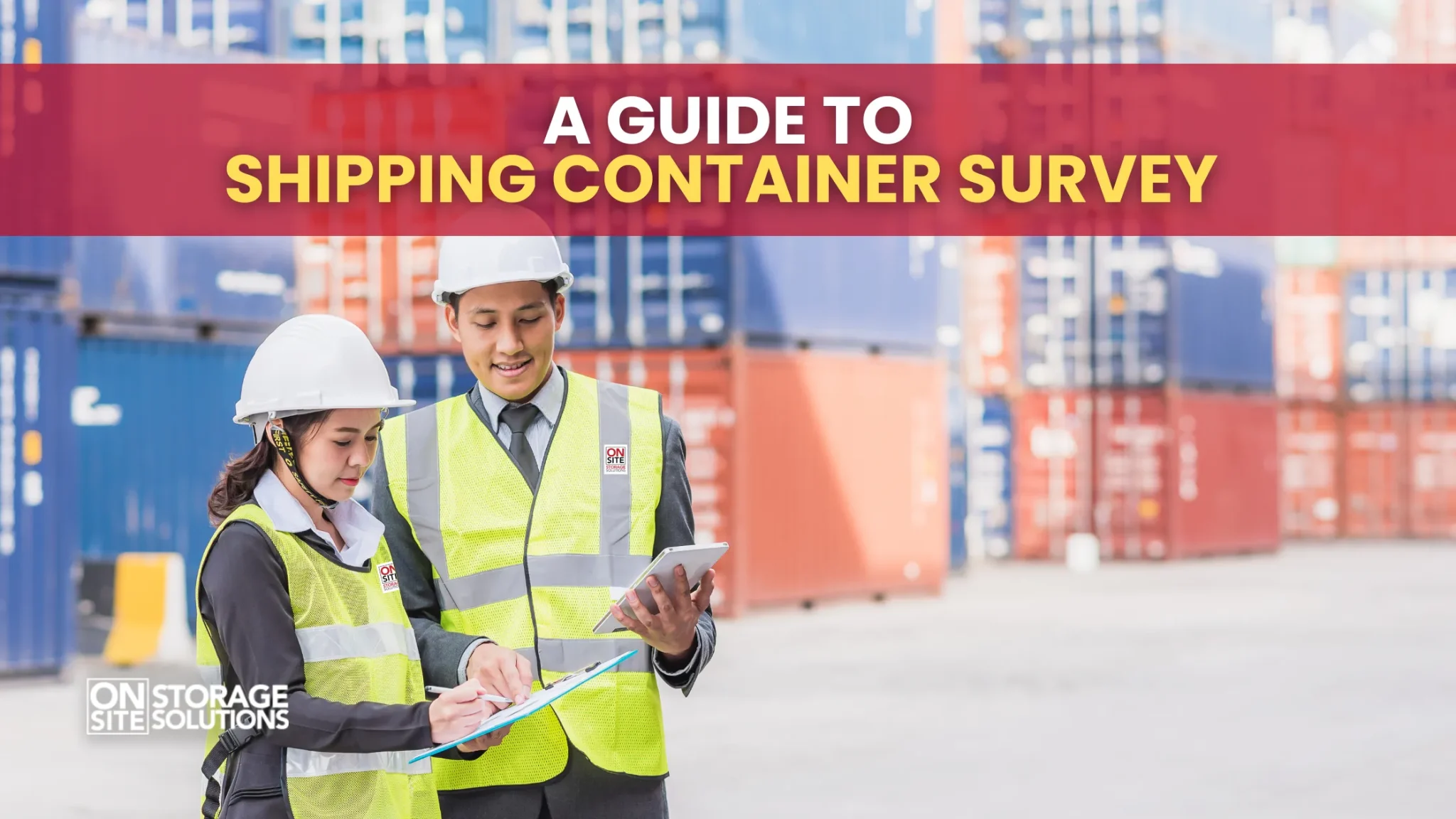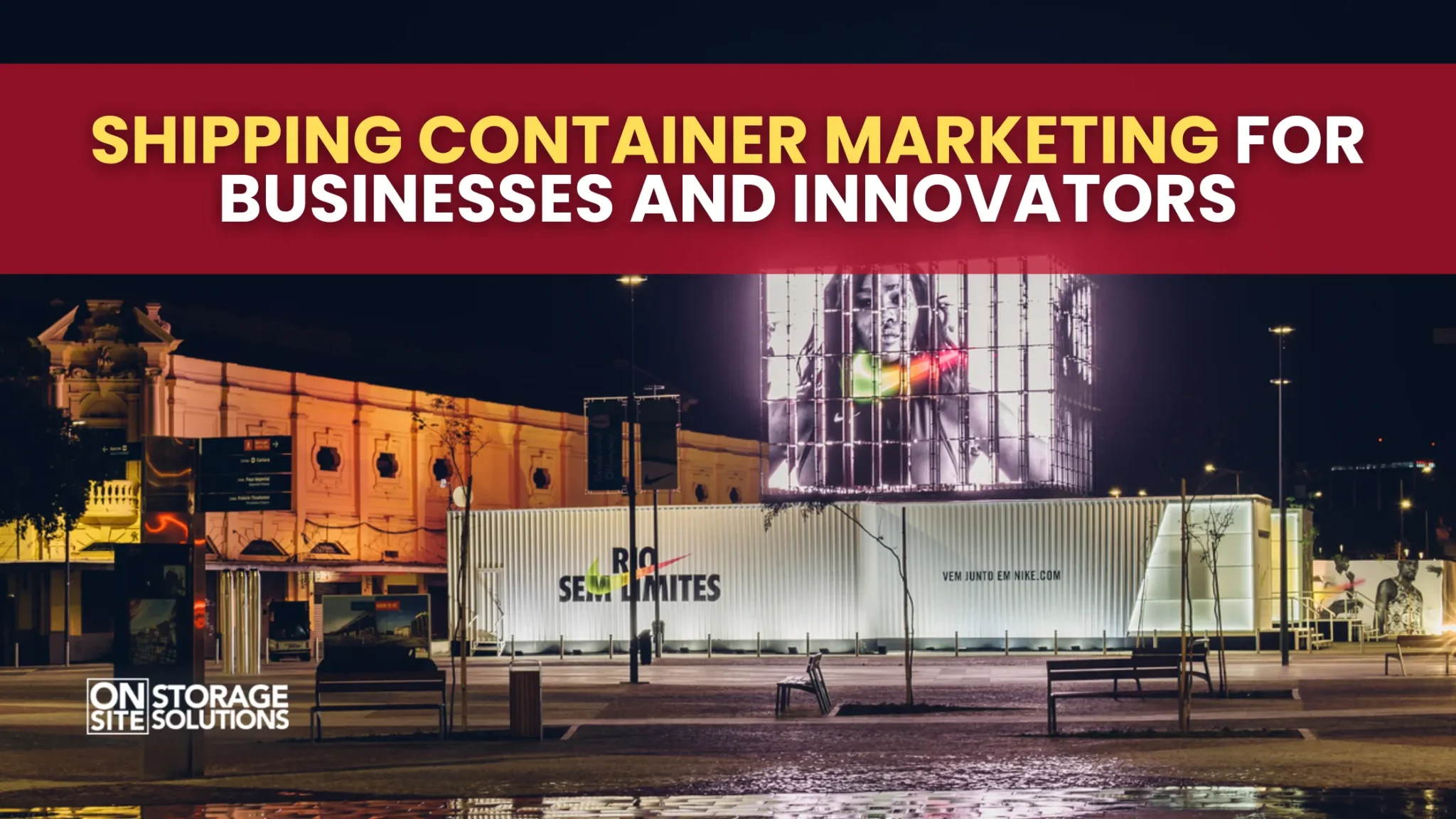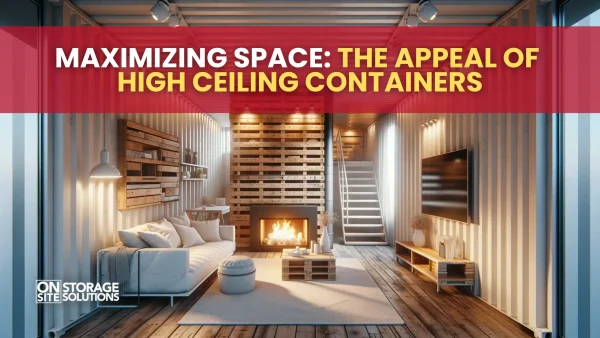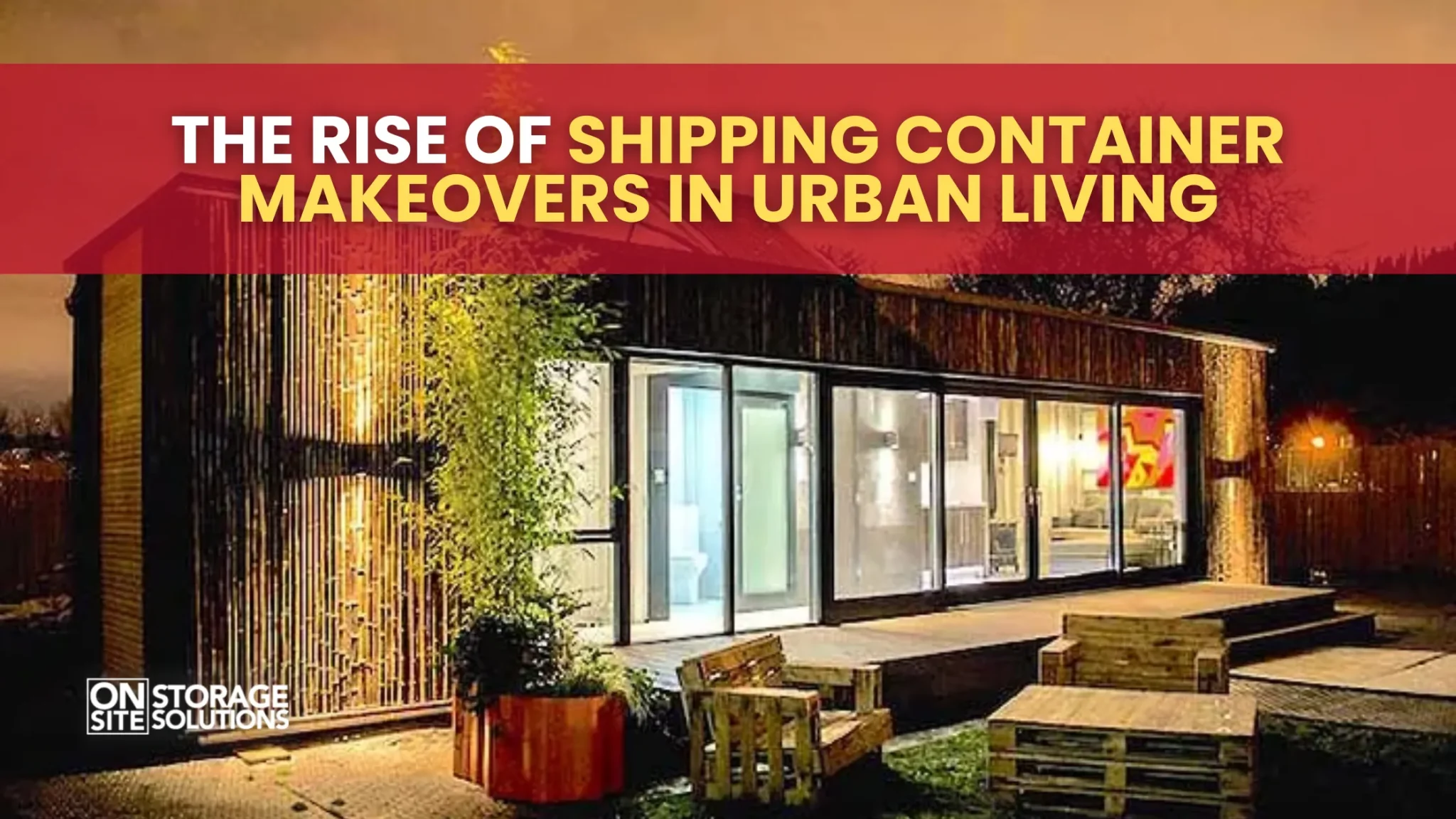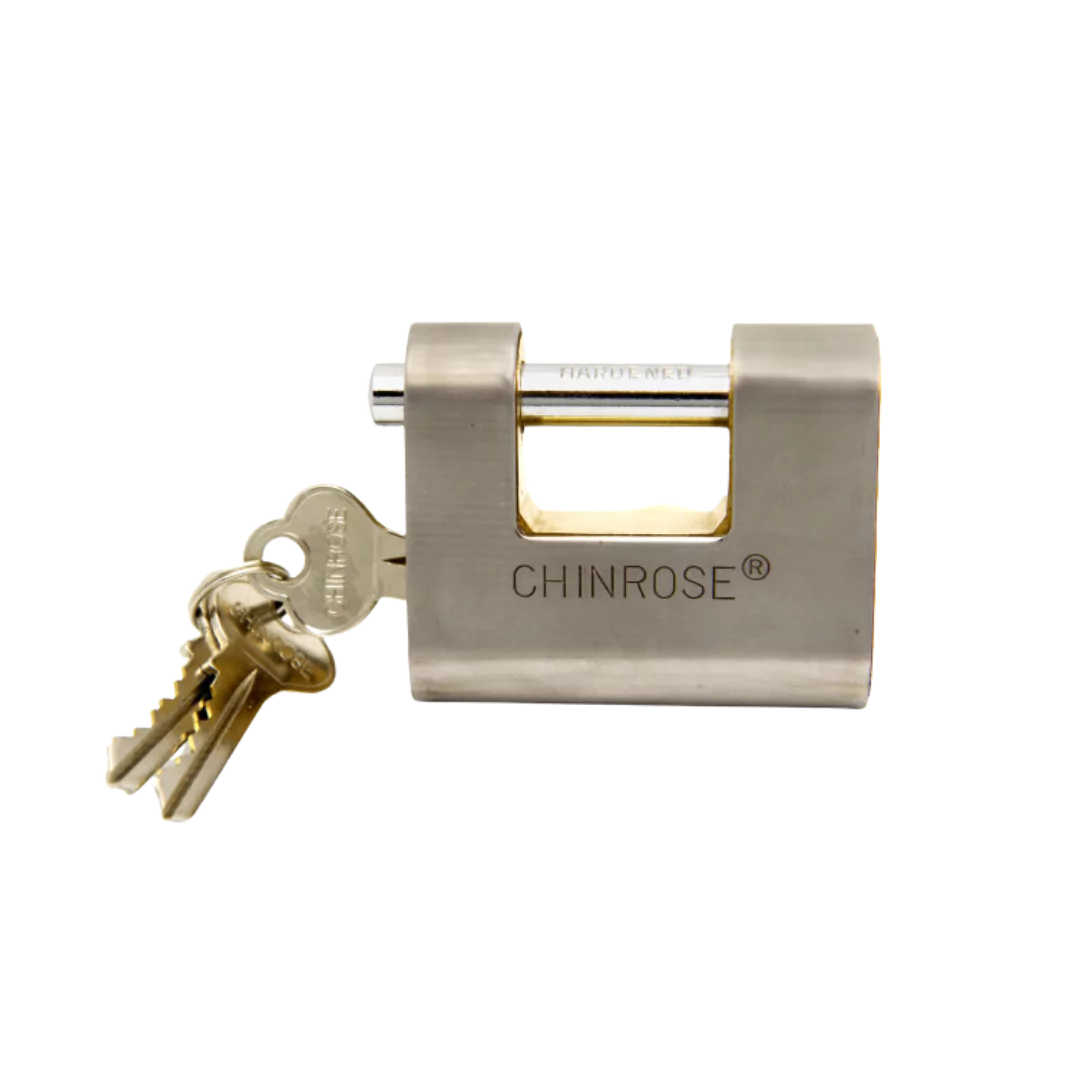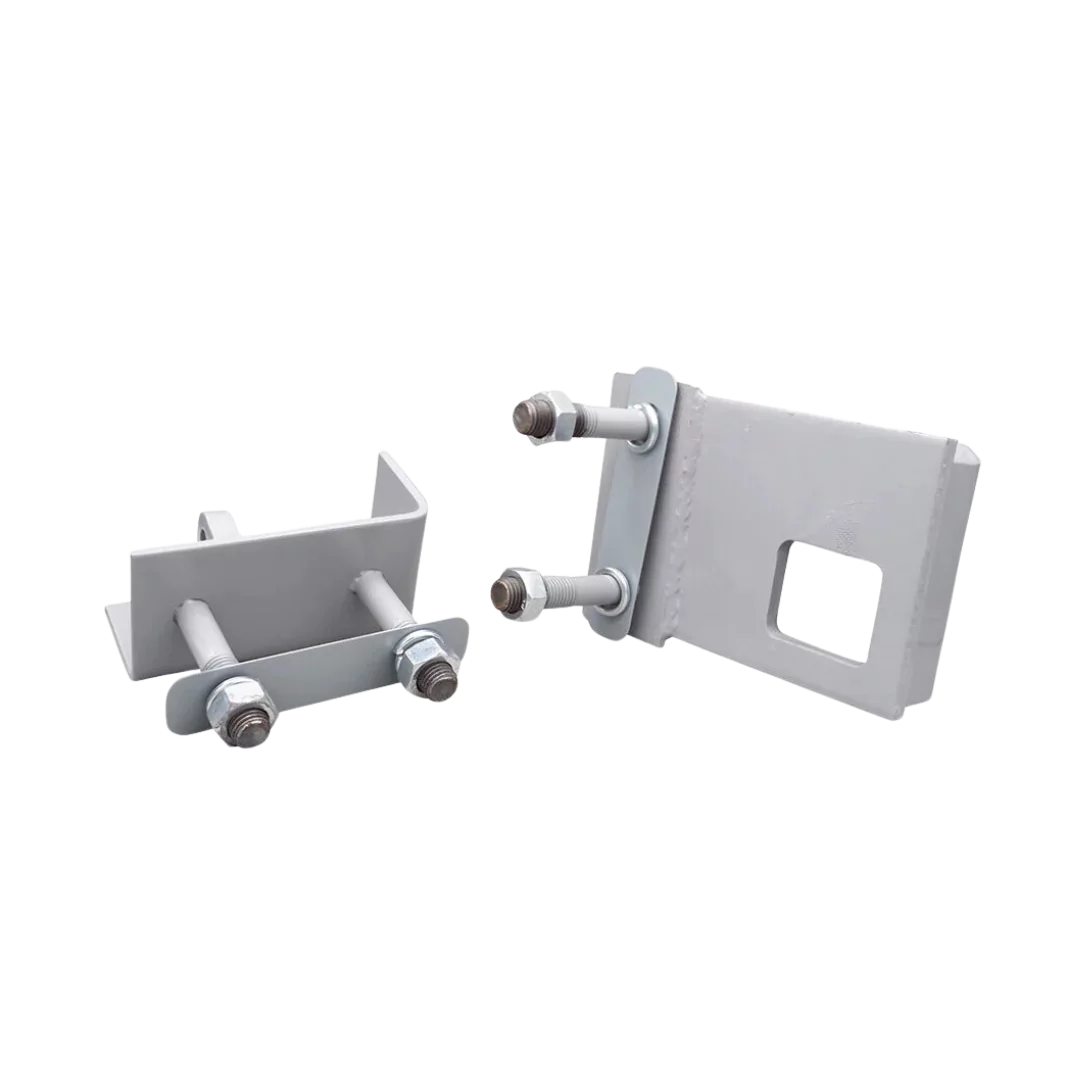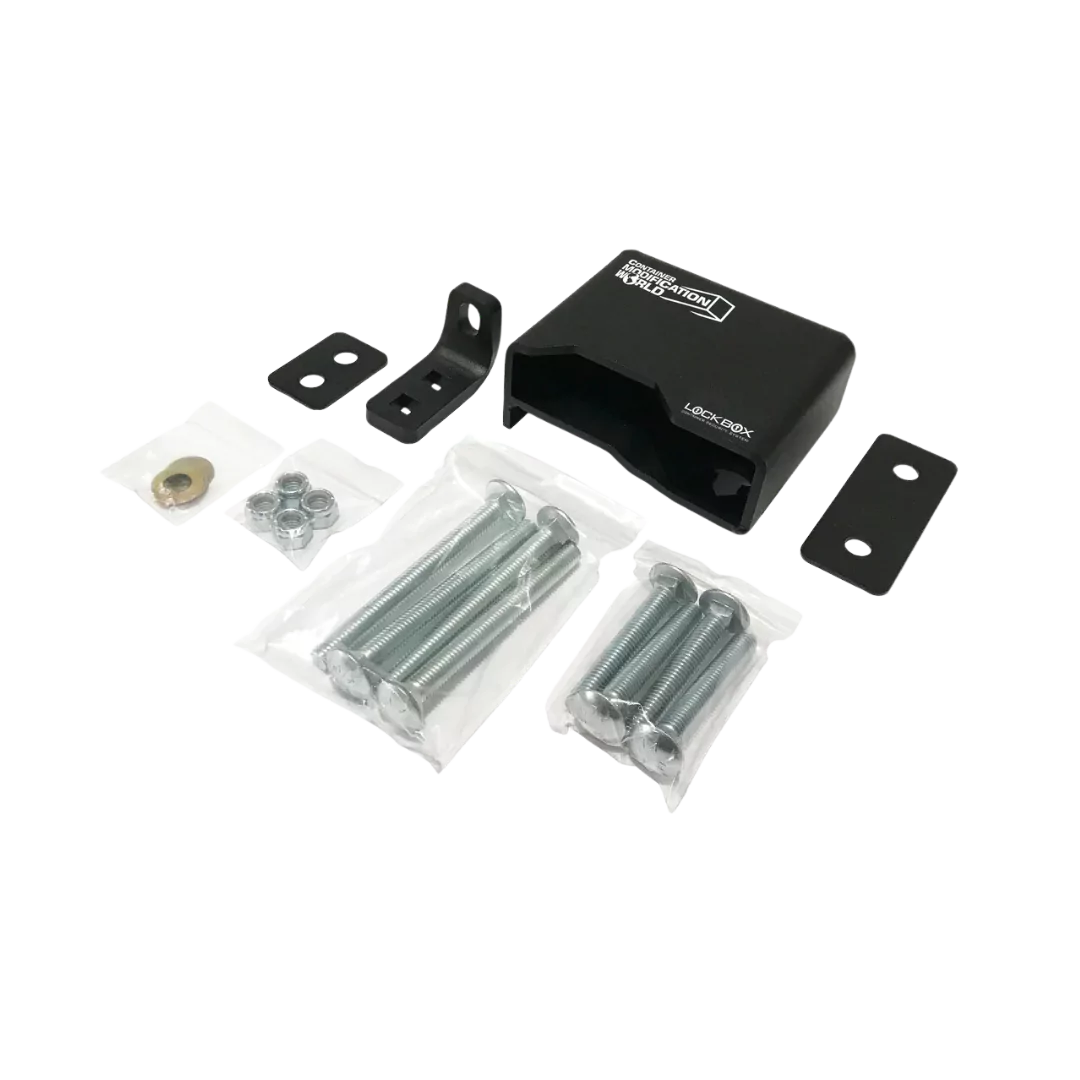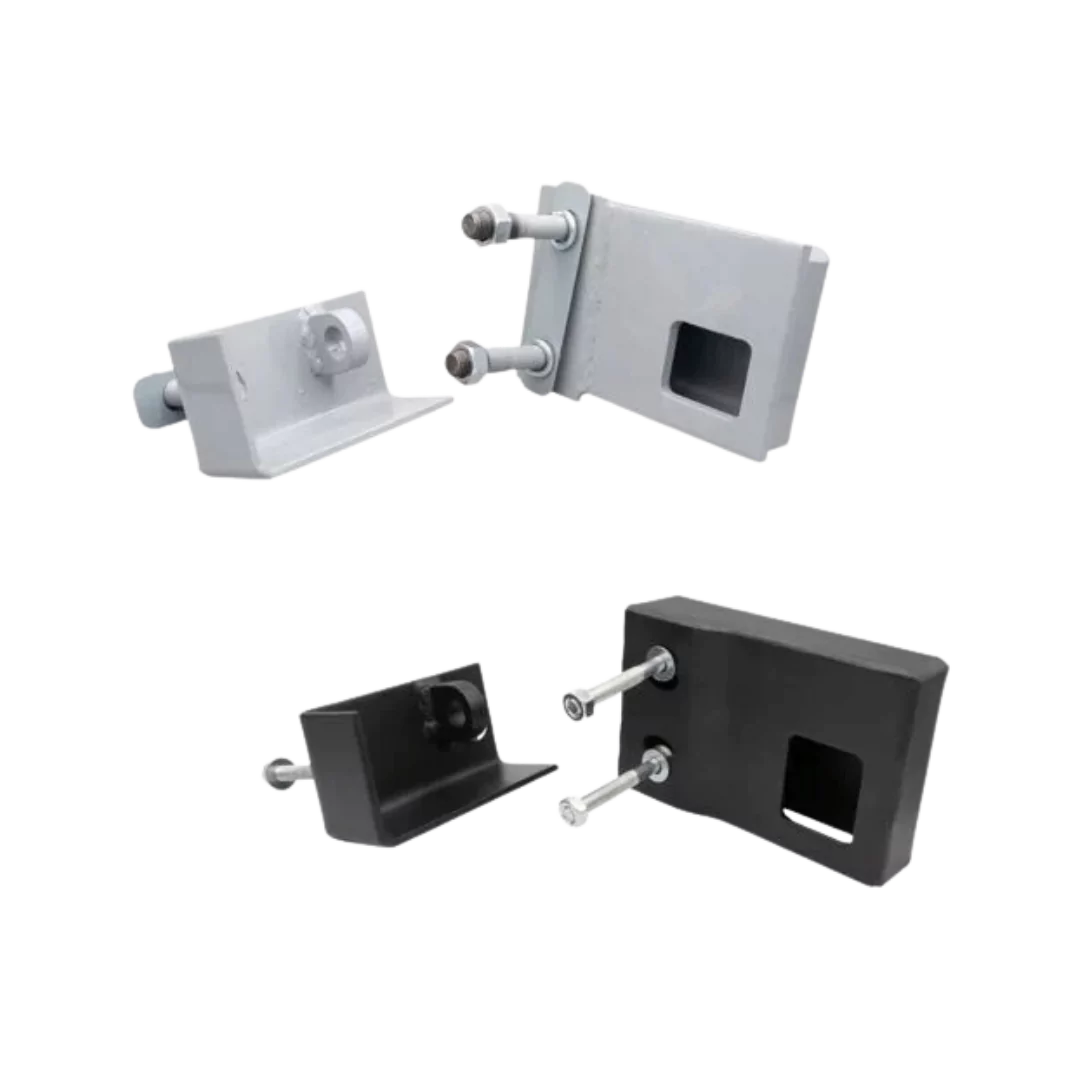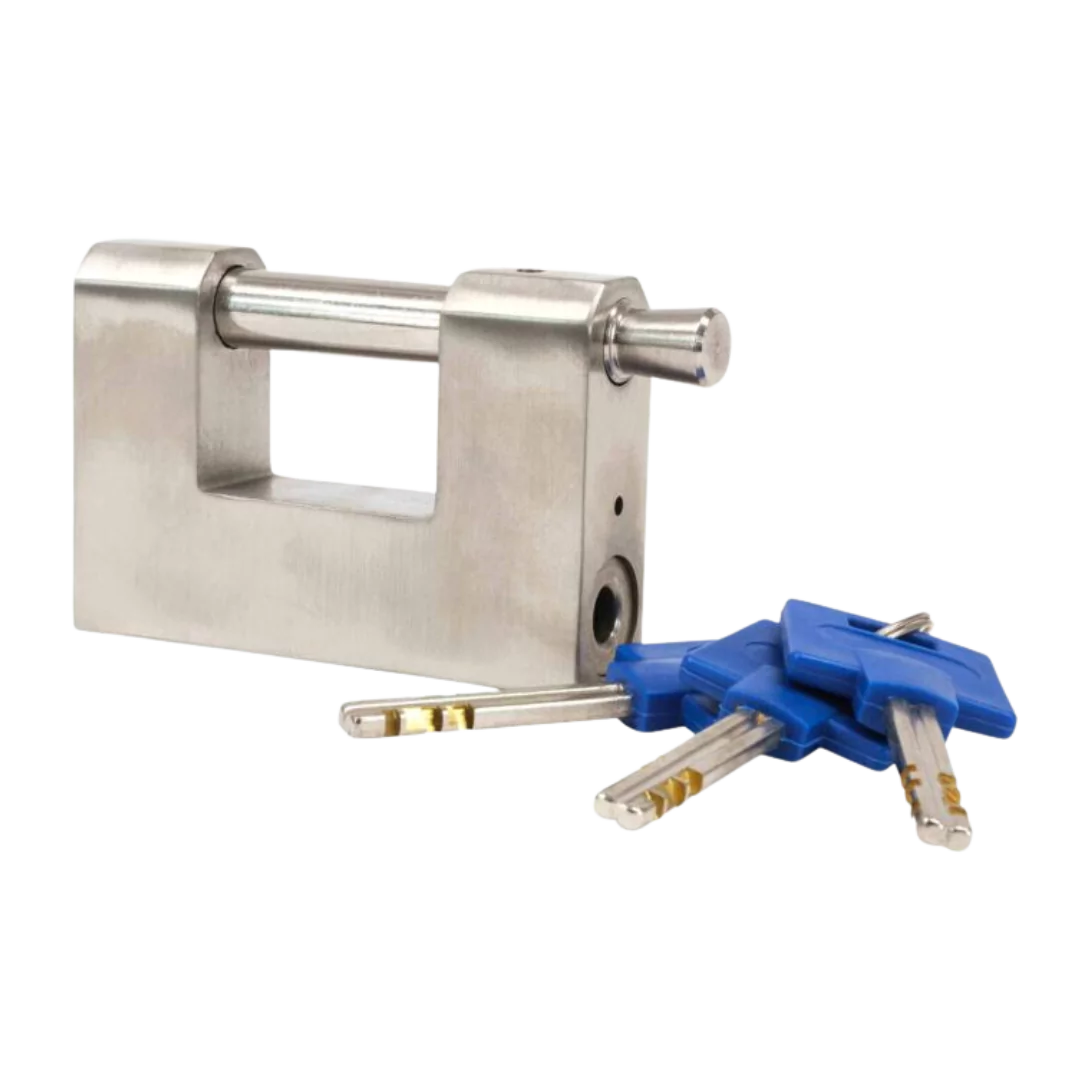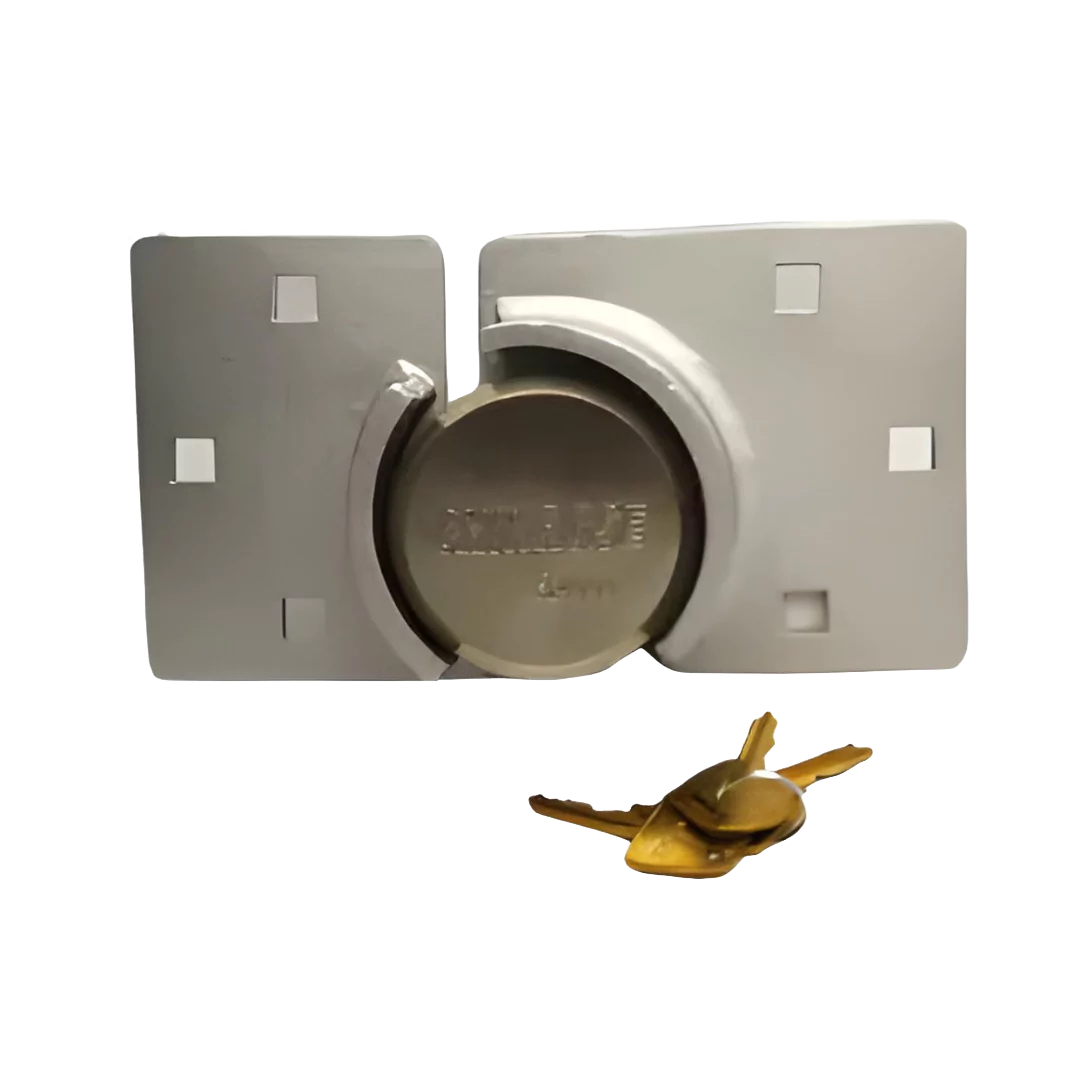
In the upcoming decades, a decline in arable land worldwide will present challenges in feeding a growing population. A cutting-edge solution involves the utilization of shipping container greenhouses, providing energy efficiency and adaptability for urban farming.
These structures lower energy expenses, occupy minimal land, and can easily incorporate solar power. They offer a sustainable method to cultivate food in diverse settings, enabling horticulture even in confined spaces. The flexibility of container greenhouses allows for expansion and placement in various urban environments, presenting vast opportunities for urban agriculture.
How Do Shipping Container Greenhouses Work?
Shipping container greenhouses function by converting regular shipping containers into controlled settings for cultivating plants. These unique constructions come with insulation and tools to establish ideal growth conditions, including temperature and humidity regulation. Specialized methods like hydroponic gardening and vertical farming can be utilized in these containers to produce fresh crops. Moreover, the incorporation of sensors enables the supervision and adjustment of environmental factors to guarantee plant health and development.

Benefits of Shipping Container Greenhouses
Shipping container greenhouses offer various benefits like year-round growing, taste control, and local produce for communities. Let’s explore the top perks of using shipping container greenhouses.
- Grow Crops in Urban Areas – Shipping container greenhouses have gained popularity in crowded metropolitan areas where space is at a premium. You don’t require vast farmland for a container garden; a 20-foot container is sufficient to cultivate your fresh produce. This practice not only connects individuals more closely to their food sources but also mitigates various significant environmental issues linked to traditional agriculture.
- Grow food in Rural Areas – Living far from essential equipment and assistance poses challenges for rural farmers. Conventional agriculture becomes impractical, but shipping container greenhouses offer a comprehensive solution, integrating farming systems and environmental control. Through methods like drip irrigation and glass panels, these greenhouses create optimal conditions, minimizing daily tasks. With just access to water and electricity, individuals lacking abundant food resources can grow fresh produce and embrace a modern farmer’s lifestyle.
- Eco-Friendly – Using shipping containers as greenhouses is eco-friendly because they’re made from recycled materials, reducing the need for new resources. They’re well-insulated, energy-efficient, and can help cut heating costs in cold climates. Containers can collect rainwater for irrigation, saving water. Plus, they provide secure storage for tools when not in use, eliminating the need for extra structures.
- Controlled Environment Agriculture – A well-insulated and well-equipped shipping container greenhouse, with proper insulation and equipment, can thrive in harsh climates, yielding fresh food year-round. Sensor data feed into a hydroponic system for continuous food production. By providing optimal lighting and nutrients, you can simulate diverse growing conditions within the container.
What Are The Ideal Examples Of Storage Container Greenhouses For Your Needs?
Considering starting your greenhouse with shipping containers? Explore these container farming technology examples to gain insight into the possibilities for your shipping container project.
1. Growtainers
The Growtainer, a collaborative creation of Texas A&M AgriLife Research, Greentech Agro LLC, Clinton Global Initiative, and Phillips, is hailed as the “portable farm of the future.” These innovative structures are essentially large shipping containers transformed to cultivate a variety of fruits and vegetables.
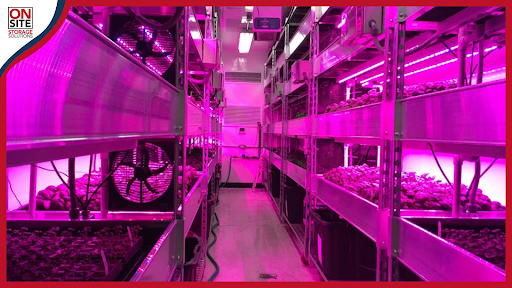
Equipped with specialized Grow Racks for vertical crop growth, a computerized controller, ozone-treated water, and a CO2-enriched environment, Growtainers provide all the essentials to kickstart your farming journey. The range of plants that thrive in these containers includes fresh herbs, produce, leafy greens, as well as broadleaf and root vegetables.
2. Freight Farms
Freight Farms prioritizes sustainability and carbon footprint reduction through hydroponic produce cultivation inside repurposed shipping containers fitted with LED lighting, known as ‘The Leafy Green Machine’. This innovative setup allows for substantial water savings compared to conventional farming methods while ensuring the production of premium crops.
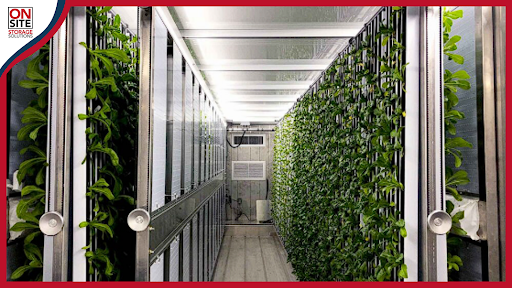
By transforming these containers, they enable large-scale agricultural production to reach local markets, irrespective of location. The integration of cloud-based control elevates the experience, offering remote access and customizable settings for optimal plant growth.
Imagine receiving real-time updates on your mobile as conditions change in the container, or observing your plants’ progress during your daily commute. Their comprehensive business model covers all the essentials for operating a successful Leafy Green Machines farm, including fertilizers, seeds, and nutrients.
Their clientele ranges from small-scale community growers providing fresh vegetables for personal consumption to expansive commercial ventures catering to the fresh food market.
3. Urban Farm Units
The Urban Farm Unit offers a unique twist on the traditional greenhouse by integrating it with a 20-foot modified open-top shipping container. This innovative design incorporates aquaponics and micro-methanation technology, making it accessible for DIY replication.
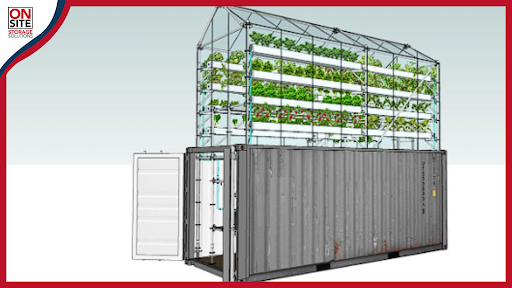
Creating your container greenhouse involves utilizing existing hydroponic systems, industrial greenhouse components, an open-top container, and scaffolding. The system is self-sustaining, with water recirculated through the aquaponic setup and nutrients supplied by the fish, eliminating the need for external water or fertilizers. This closed-loop method allows for an entirely organic operation.
4. Modular Farms Co
Modular Farms Co. is an Australian company that creates solutions to help you thrive in any environment. Their innovative modular farm system removes the need for extra components in your farming setup, eliminating cluttered spaces and glass ceilings. With vertical farming technology, anyone can grow healthy plants vertically, anywhere in the world. This cutting-edge system demonstrates the advanced possibilities of shipping container farms and greenhouses.
Conclusion
Shipping container greenhouses provides an innovative and eco-conscious solution to the global issue of diminishing arable land and the escalating demand for sustainable farming. These structures, repurposed from standard shipping containers, offer energy efficiency, suitability for urban agriculture, and the capacity to grow crops in various environments. Equipped with features like insulation, hydroponics, vertical farming, and sensor-driven automation, container greenhouses establish controlled settings for year-round cultivation. This enables precise taste management and the production of fresh, local crops for communities.
On-Site Storage Solutions
Discover a wide range of shipping container sizes at On-Site Storage Solutions, perfect for cargo container greenhouses. From 20-foot to 40-foot options, find the ideal fit for your agricultural needs. Contact us at (888) 405-8772 to explore our container solutions or fill out a quotation form on our website. Let’s discuss the best container for your greenhouse or freight farm today!
FREQUENTLY ASKED QUESTIONS
To build a shipping container farm: Acquire suitable containers, prepare the site, insulate and modify containers for controlled farming, install HVAC, plumbing, and electrical systems. Set up hydroponic or vertical farming, choose crops wisely, and ensure regular monitoring and maintenance for successful container farming
Transforming a shipping container into a garden room involves insulating walls, ceiling, and floor for temperature regulation. Create openings for doors and windows to enable natural light and ventilation. Install electrical wiring, lighting fixtures, and power outlets. Apply insulation and interior finishes for added comfort. Complete the space with greenery, furniture, and decorative elements.
Climate controlling a shipping container requires the installation of an appropriate cooling or heating system. The most common way is by installing air conditioning units as well as insulation material on the walls, ceiling, and floor of the container.
There are many insulation options available for insulating a storage container, such as reflective bubble wrap, foam panels, and pre-manufactured panels.



